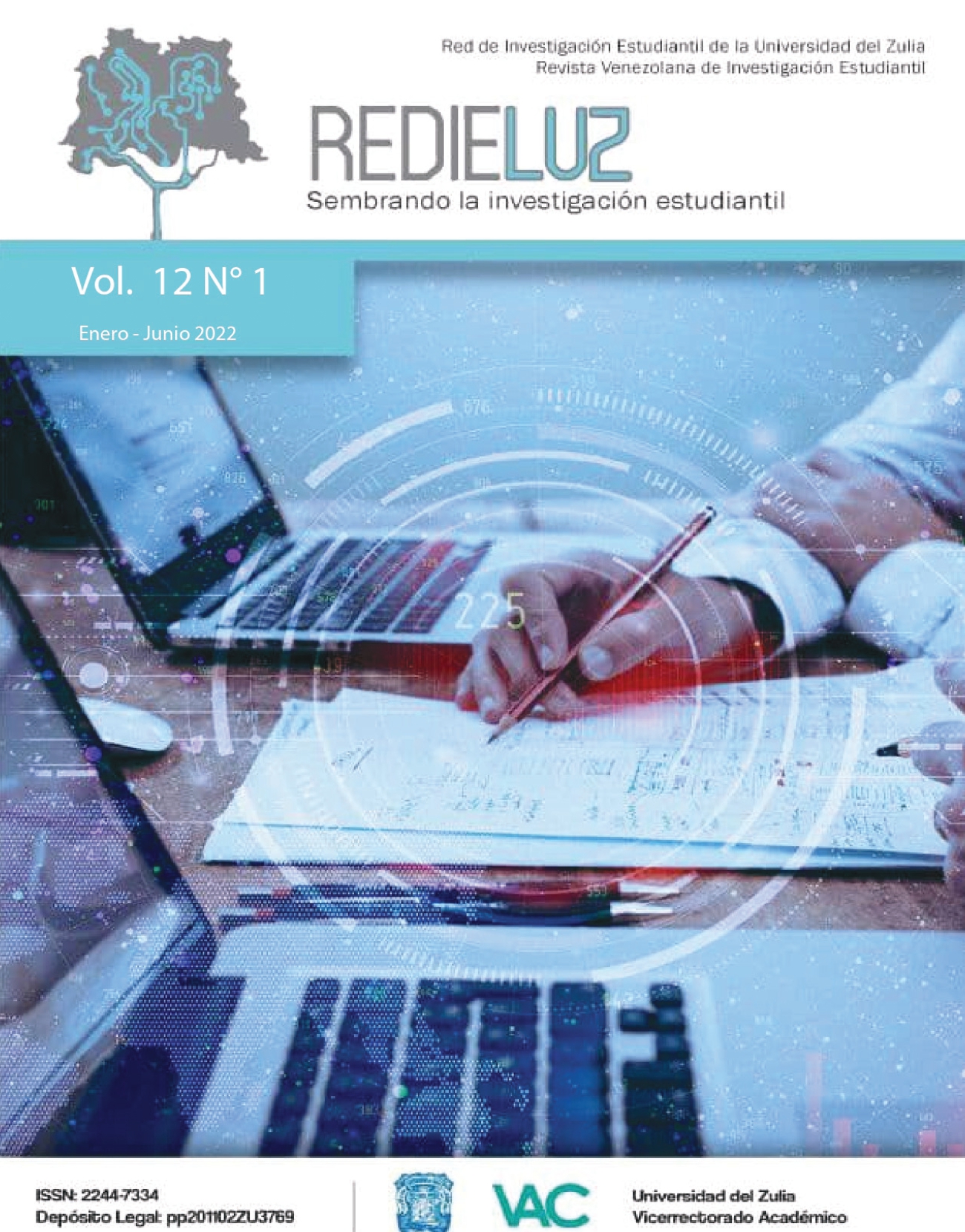Emotional status of the elderly adult in COVID-19 pandemic, in the city of Machala 2021
Abstract
The older adult has experienced during the pandemic of covid-19, a series of feelings and emotions such as sadness, anguish, fear, anxiety, hopelessness, depression and social isolation, described as the emotional state that is evident in the older adult of Machala, Province of El Oro - Ecuador. Therefore, it is intended to determine the emotional state of the elderly during the pandemic of COVID-19, in order to implement a community management program that allows the strengthening of the emotional state in the elderly of Machala. A descriptive projective research was developed, with a non-experimental, transectional and field design. The population and the sample consisted of 56 older adults, to whom the Hospital Anxiety and Depression Scale (HADS) was applied, assessing the cognitive and behavioral symptoms of anxiety and depression. The results show that 55% of the population is female, where the majority of the elderly had a normal level of irritability, both external and internal, with 47 elderly (81%), in addition to the level of depression of the elderly in social isolation during the COVID-19 pandemic, which was 43% severe. It is concluded that the elderly population is subjected to high levels of anxiety and depression; therefore, emotional coping strategies were provided to improve the emotional state during the COVID-19 pandemic.
Downloads
References
Arias Molina, Y., Herrero Solano, Y., Cabrera Hernández, Y., Chibás Guyat, Doralvis, y García Mederos, Y. (2020). Manifestaciones psicológicas frente a la situación epidemiológica causada por la COVID-19. Revista Habanera de Ciencias Médicas, 19(Supl. 1), e3350. Epub 10 de junio de 2020. Recuperado en 24 de agosto de 2021, de http://scielo.sld.cu/scielo.php?script=sci_arttext&pid=S1729-519X2020000400012&lng=es&tlng=es.
Caycho Rodríguez, T. (2021). Evaluación de la coronafobia en población adulta mayor durante la pandemia de la COVID-19. Revista Española de Geriatría y Gerontología. doi: https://doi.org/10.1016/j.regg.2021.02.006
Collado, M.R (2005). Anciano sano: Cambios asociados al envenejecimiento. In Enfermería: Geriatría y Gerontología. Atabán Ediciones. Pp 97-118.
Du R, Liang L, YC, Wang W, Cao T, Li M, (2020) Predictors of mortality for patients with COVID-19 pneumonia caused by SARS-CoV-2: a prospective cohort study. European Respiratory Journal. 2020 [citado 2020 nov 19]; 55(5). Disponible en: https://www.ncbi.nlm.nih.gov/pmc/articles/PMC7144257/&ved=2ahUKEwjZ3cPFwMbuAhXBTTABHR0DBVEQFjAAegQIBhAC&usg=AOvVaw- 22NUr7Sskc8zLwn8W5gleQ
Hurtado De Barrera, J (2010). Lìneas de investigación y gerencia del conocimiento: premisa de la cultura de investigación. Trilogía ciencia tecnología sociedad, 2 (2).
Naranjo Hernández, Y., Mayor Walton, S., Rivera García, O., y González Bernal, R. (2021). Estados emocionales de adultos mayores en aislamiento social durante la COVID-19. Revista Información Científica, 100(2), e3387. Epub 01 de marzo de 2021. Recuperado en 24 de agosto de 2021, de http://scielo.sld.cu/scielo.php?script=sci_arttext&pid=S1028-99332021000200004&lng=es&tlng=es.
OMS.(2020) Brote de enfermedad por coronavirus (COVID-19). Ginebra. 2020 [citado 2020 dic. 27];10-14 Disponible en: https://www.who.int/es/emergencies/diseases/novel-coronavirus-2019
OMS (2016). Datos interesantes acerca del envejecimiento.Recueprado de http://www.who.int/ageing/about/facts/es/
Organización Panamericana Salud, (2020), Consideraciones psicosociales y de salud mental durante el brote de COVID-19, OPS.
Pappas G, Kiriaze I, Giannakis P, Falagas M.(2009) Psychosocial consequences of infectious diseases. Rev Clinical Microbiology and Infection.[citado 2020 nov 19]; 15(8): 743-747. Disponible en: https://www.clinicalmicrobiologyandinfection.com/article/S1198-743X(14)60461-4/fulltext&ved=2ahUKEwjoh-y3wcbuAhUWTTABHTFnAFEQFjAAegQIBhAC&usg=AOv-Vaw3Ky0ngGR9zote0GsdlJHYs
Pinazo S. (2020) Impacto psicosocial de la COVID-19en las personas mayores: problemas y retos.Rev Esp Geriatr Gerontol. [citado 2020ene 19]. 2(1): 4-6. Disponible en: https://www.elsevier.es/es-revista-revista-espanola-geriatria-gerontologia-124-articulo-impacto-psicosocial-covid-19-personas-mayores-S0211139X20300664&ved=2ahUKEwjA7a_zv8buAhVhRTABHUM8A1EQFjAAegQIARAB&usg=AOvVaw1ABaXlCNrboAYnuVxeFw9e
Pinazo-Hernandis, S. (2020). Impacto psicosocial de la COVID-19 en las personas mayores: problemas y retos. . Revista Española de Geriatría Y Gerontología, 55(5), 249–252. https://doi.org/10.1016/j.regg.2020.05.006.
Zigmond A.S & Snaith, R.P (1983). The hospital anxiety and depression scale. Acta psychiatrica scandinabica, 67 (6), 361-370.
Talya Shragai, 202-227-7643, & pqp6@cdc.gov, (2021), Epidemiologic, immunologic, and virus characteristics in patients with paired SARSCoV- 2 serology and reverse transcription polymerase chain reaction testing
Copyright
Authors who publish in this journal agree to the following terms:
Authors retain copyright and grant the journal the right to be the first publication where the article is submitted, which is published under a Creative Commons Attribution License, which allows others to share the work upon acknowledgment of authorship of the work and initial publication in this journal.
Authors may separately enter into additional agreements for non-exclusive distribution of the version of the work published in the journal (e.g., placing it in an institutional repository or publishing it in a book), with an acknowledgement of its initial publication in this journal.
This work is licensed under the license:
Creative Commons Attribution-NonCommercial-ShareAlike 4.0 International (CC BY-NC-SA 4.0).



3.png)


_.jpg)

_(1).jpg)
1.jpg)





